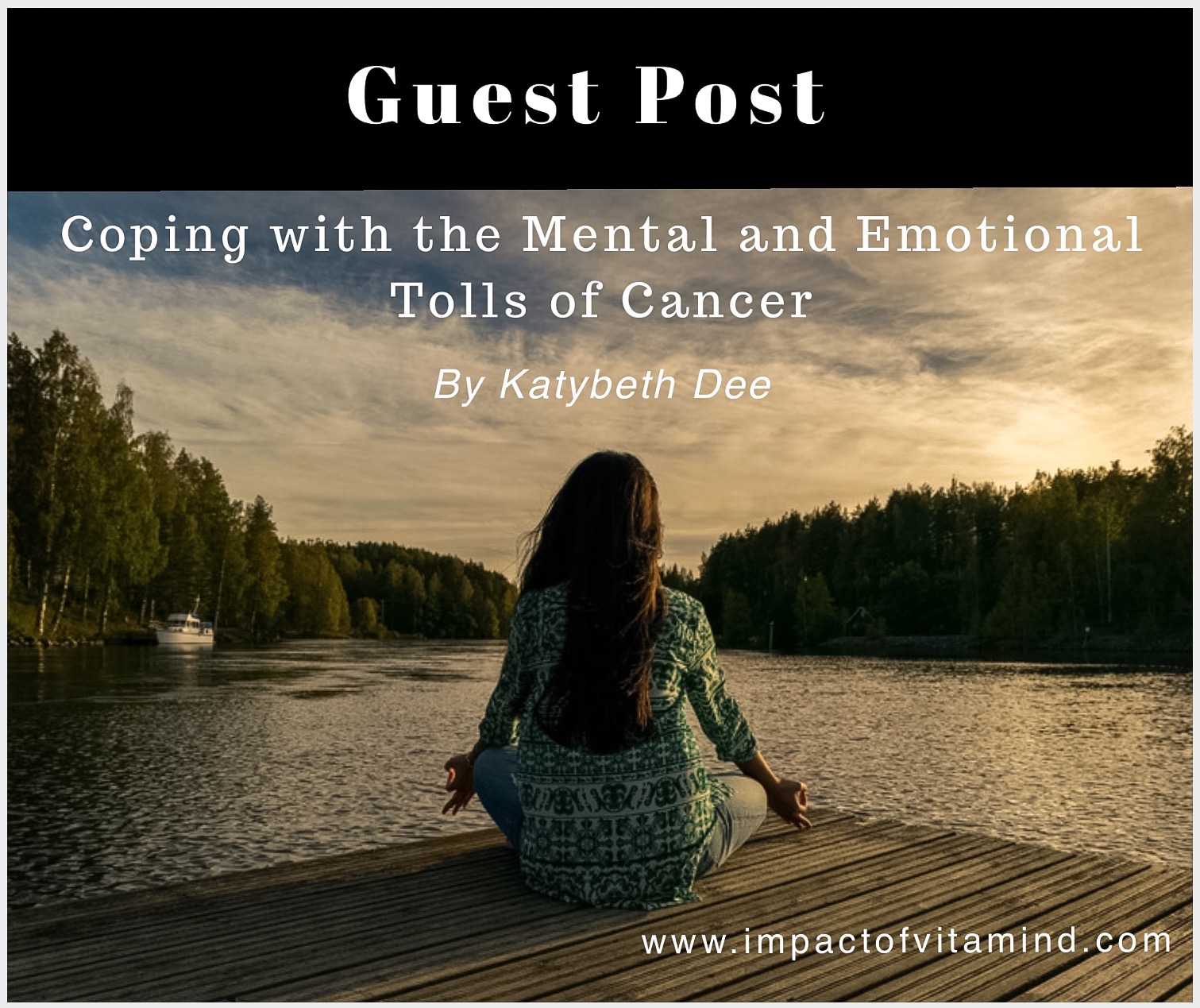Last update: 08-21-22
By Katybeth Dee
Dealing with a cancer diagnosis and any subsequent treatments and procedures can be overwhelming. Whether you’re a cancer patient who was just diagnosed or you’re a cancer survivor in remission, you must deal with mental and emotional toll of the diagnosis, treatment, and recovery. Fortunately, there are healthy and meaningful ways to cope.
Activities You Enjoy
Spending some time writing about your cancer journey is another way to cope. You can write an entire memoir, write poetry, or take a few notes throughout the day. No matter how involved you are, just engaging in the writing process will benefit you. If words aren’t your cup of tea, you can paint, write music, or make any other artistic expression. An artistic outlet will allow you to better comprehend and accept your diagnosis, treatment, and recovery.
Writing and artistic expressions shouldn’t be seen as a distraction from cancer. Instead, they’re a rewarding and meaningful way to analyze everything you are feeling and going through. Furthermore, it’s inexpensive and doesn’t require physical exertion, so you can use it as a tool even on one of your worst days.
Yoga and Meditation
As the Yoga Journal states, “While it’s not a cure for cancer, yoga enhances physical and emotional wellness and brings a peace many patients had thought they’d lost forever.” Yoga, meditation, and other relaxation techniques are ways to quiet your mind and body, which allow them to heal. Relaxation techniques reduce stress as well, which is important because studies have shown that stress can contribute to the development and progress of cancer.
Yoga can increase strength, reduce pain, and improve the overall quality of life. A yoga session may also include guided relaxation, meditation, and visualization – all things that further promote relaxation and healing. Furthermore, it’s a great option for cancer patients and survivors because it’s low impact and has a low risk of injury.
Exercise
If you’re feeling up to it, getting some low-impact exercise is good for you. Experts agree that exercise is beneficial for most cancer patients and survivors. In general, if care is taken and professional advice is followed closely, there’s little risk. Exercising can boost your energy levels and improve your immune system, helping your body to better deal with cancer and cancer treatments.
Exercise can help improve many of the side effects of cancer and cancer treatments, including anemia, nausea, loss of appetite, fatigue, anxiety, depression, and body weight and composition changes. You should aim for about 20 minutes of moderate-intensity exercise four or five days a week. As previously mentioned, yoga is one option. You can also ride a bike, swim, or take your dog for a walk. Dogs also have the added benefits of improving your overall health, boosting your mood, reducing stress, and providing great company. If you want to take advantage of those great benefits but don’t have a dog, consider finding ways to spend time with someone else’s, either as a dog sitter or the neighborhood dog walker.
Speaking with a Professional
Finding out you have cancer, going through treatment, and even living as a cancer survivor all produce levels of worry and anxiety. For many people, simply talking about their feelings helps to relieve worry and anxiety. Choosing the right person to talk with is important. It can be a good friend, a family member, or a religious person, such as a minister. Many people find speaking with a licensed mental health professional – such as a social workers, psychologists, and psychiatrists – to be comforting and beneficial.
Not only are they expert listeners, they also can teach you valuable coping skills to use outside of your meetings. “Even one session with a licensed mental health professional can often help you and your family focus on what matters most,” says the American Cancer Society. If you need help locating a mental health professional, ask your cancer team, family doctor, or insurance company for recommendations.
A cancer diagnosis and the treatments that follow may be the most difficult things you ever do in your life. Continuing life in remission can be difficult as well. Finding healthy and meaningful ways to cope with the mental and physical challenges of cancer can help you live a better and longer life.
About
Katybeth Dee created SelfExam.org after her sister received a cancer diagnosis at a young age. Her aim is to spread awareness about cancer prevention, and she strives hard to offer support to those battling cancer.
Copyright © 2017-2022 Eugene L. Heyden, RN
All Rights Reserved

DISCLAIMER: The book excerpts and articles featured on this website are offered solely for informational purposes. The information contained therein should be evaluated for accuracy and validity in the context of opposing data, new information, and the views and recommendations of a qualified health care professional, and not to be substituted for professional judgment and guidance or to provide a reason to neglect or delay appropriate medical care for self or for others. It is the reader and reader only who bears the responsibility for any actions that could be construed as being a response to the information presented. The statements and opinions expressed by the author or authors of the information provided on this website have not been reviewed or approved by the FDA or by any other authoritative body, nor is the author endorsing any product or specific therapy mentioned. The book excerpts, articles, statements, and opinions are offered to the reader to broaden his or her understanding of the issues discussed and to help identify options that may be suitable for the individual to pursue, on behalf of self or others, under approval and direction of a qualified physician or medical team member. All questions of a medical nature which arise from the book excerpts and articles available on this website should be directed at qualified health care professional.










